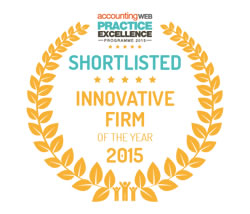Case Studies
Construction, Engineering and Construction Materials Group
This group of UK companies included operations around the EU and Ireland. The company had invested heavily in pioneering civil engineering techniques and had patented at the rate of around two processes per year. Their accountant was aware of RDTR and referred the company to us. Over the course of six months, meetings were held with project managers and substantial R & D activities were analysed and quantified. The group were able to recover substantial corporation tax levies; some of the loss making companies in the group secured repayments of PAYE taxes through the R & D tax credit scheme. TI was able to help the group through the complexities of staff provision arrangements, and a centrally run payroll for key operations.
Financial Sector Advisory Company
The company had been in the bespoke end of financial products for a number of years. It carried out significant modelling and analytical work before marketing new product offerings to clients and is FSA regulated. Speaking to the analysts and company director, several projects within the R & D guidelines were uncovered and a successful claim to RDTR was made. The company can move forward with the added benefit that it can evaluate its activities in this dimension each year with the prospect of significantly lowered corporation tax liabilities ahead.
Chemical Company
This company had a track record of foreign territory R & D claims and had recently set up a UK operation. Substantial pre trading costs were incurred on significant ground-breaking project activities. The company was able to capture a repayable tax credit in its early days, rather than await the end of its first accounting period. A valuable cash tonic.
Telecom Data Management Company
Whilst this company had claimed RDTR in the past, it had not identified substantial parts of a client contract to resolve significant security encryption issues and software / hardware interfaces during a key assignment. As this had been labelled ‘support’ services the fact that R & D activities had continued after ‘hand-over’ had been overlooked. The company was able to recover substantial additional costs and put future claims on the right track.
Software Development Company
The company is a three director IT provider reaching good growth milestones three years on from incorporation.
The company’s profits in its first three years were around £1m and it had paid £350k in corporation tax since incorporation. The Company’s Accountant and Directors had not heard of R & D tax credits until they talked to us.
Following a series of technical meetings with the company’s project staff, a number of qualifying projects were uncovered and a claim formulated. This recouped all of the corporation tax paid over by the company after start up. It went on to invest in six new engineers with the funds and the certainty that it can review its ongoing project work for eligibility.
Food & Drinks Company
A food and drinks company found that it was spending significant costs upon developing new product lines, employing food Technologists and testing the new lines.
The company also invested in a gluten free production line, Because of its size, it needed to start over with first of class technology. The Directors were involved at all stages.
A claim was made for both the new product development and the new production line work of £600,000. The company’s tax bill was reduced by £148,000. It now intends claiming R & D annually.

